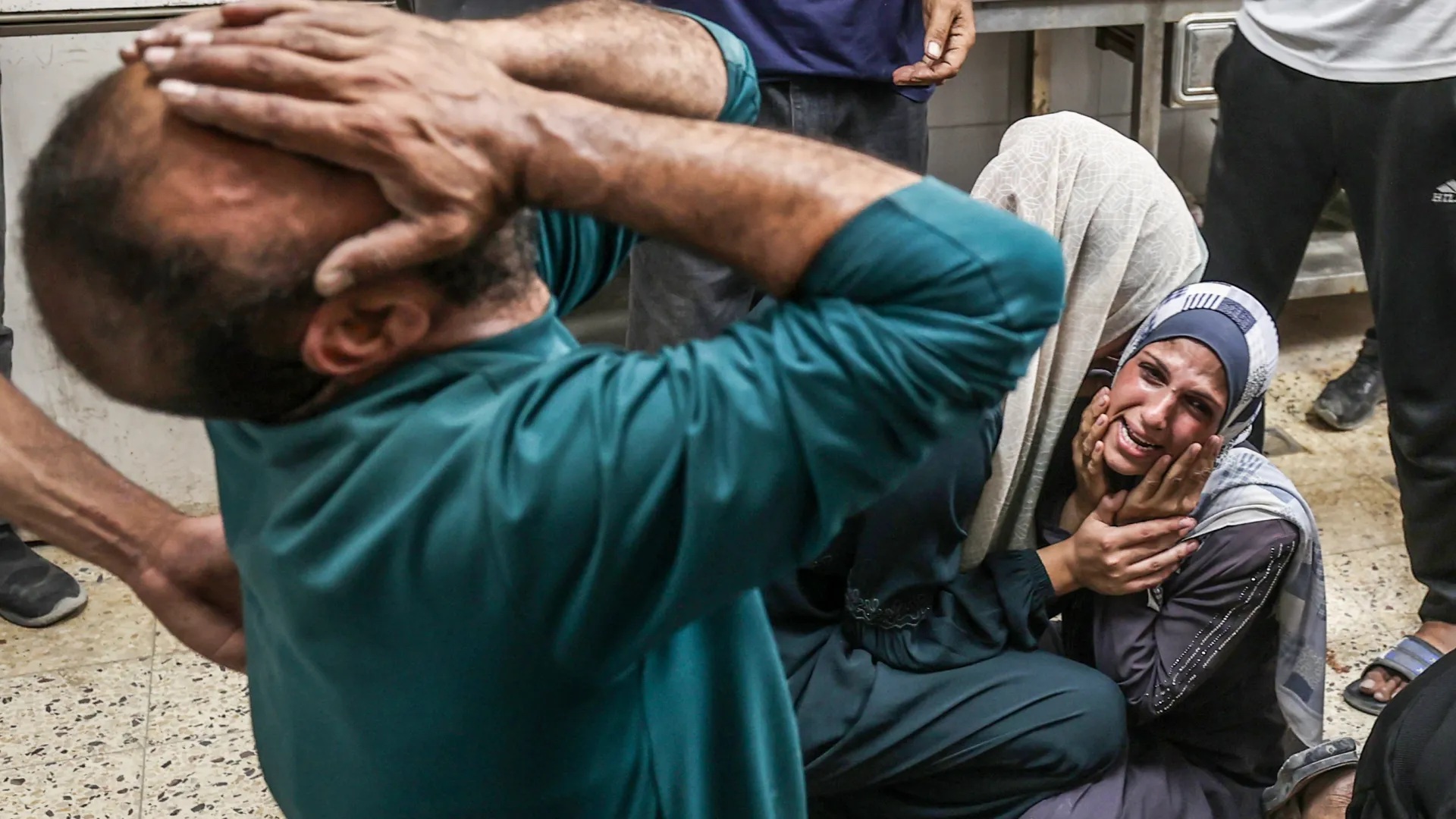At least 30 Palestinians have lost their lives since dawn on Friday as Israeli military operations intensify across the Gaza Strip, according to medical sources who spoke to Al Jazeera.
As the enclave continues to suffer under bombardment and blockade, Gaza’s fragile healthcare infrastructure is being pushed to the brink.
With a constant influx of injured civilians, overwhelmed doctors are now forced to make impossible choices about who receives care.
One of the latest Israeli strikes targeted the Tuffah area in eastern Gaza City, killing three individuals.
Meanwhile, another attack in the Jabalia an-Nazla area of northern Gaza claimed five more lives.
Earlier in the day, an Israeli assault on al-Mawasi, a southern region previously marked as a “safe zone” for displaced civilians, ignited a fire that killed at least five people, including children.
Al-Mawasi, despite its supposed safety designation, has been repeatedly hit with deadly force.
Among the dead are seven Palestinians who were attempting to collect humanitarian aid, highlighting the increasingly perilous situation even for those simply seeking food and water.
Al Jazeera reporter Hani Mahmoud, on the ground in Gaza, described the growing number of injuries treated at Nasser Hospital, many of which appear to be caused by drone-launched explosives.
He explained that these munitions often contain sharp metal fragments designed to maximize damage, leading to internal injuries and uncontrolled bleeding.
“These weapons are reportedly precise, yet the casualty numbers on the ground tell a different story,” Mahmoud stated.
He added that such attacks often occur in busy civilian areas such as markets or near water distribution points, where large crowds gather out of desperation.
Hospitals Overloaded, Patients Left in Limbo
The Israeli-imposed blockade has made it nearly impossible for hospitals to function effectively.
Medical personnel are increasingly forced to triage based on survivability, often neglecting those with chronic illnesses due to the overwhelming number of trauma cases.
Omda Dagmash, a dialysis patient, spoke to Al Jazeera from the nearly inoperative al-Shifa Hospital in Gaza City.
“Before the war, I received dialysis three times a week for four hours each session.
“Now we struggle to even reach the hospital, and we’re malnourished,” Dagmash said.
Due to fuel shortages and equipment failures, dialysis services have been drastically reduced.
For some patients, this lack of access means facing potentially fatal consequences.
Rowaida Minyawi, an elderly patient suffering from multiple health conditions including heart disease and diabetes, expressed her frustration.
“The journey to the hospital is exhausting and expensive.
“And when we finally get here, there’s often no treatment available.
“Are we just supposed to die at home?” she asked.
Hospital officials confirm that due to the fuel crisis, large portions of facilities have had to shut down.
Ziad Abu Humaidan from the hospital’s engineering department said, “Only a few units are operational.
We’ve had to cut power to the rest. Without electricity, critical equipment doesn’t work, and we can’t save lives.”
He described a grim scene, noting, “Our hospital courtyards have turned into graveyards rather than places of healing.”
Israeli Public Support for War Dwindles
Back in Israel, domestic support for the prolonged war appears to be eroding.
A poll conducted by Maariv, a local news outlet, found that 44 percent of Israelis believe the ongoing military campaign in Gaza will not meet its stated objectives.
Only 42 percent still believe the war effort will succeed, while 11 percent remained unsure.
The survey also revealed political divides.
Among supporters of Israel’s ruling coalition, 73 percent believe in the success of the military operation. In contrast, 70 percent of opposition supporters disagree.
Tensions rose further on Thursday after an Israeli strike hit Gaza’s only Catholic church, killing three people and injuring at least ten.
The rare attack on a religious site sparked criticism, even from key allies.
U.S. President Donald Trump reportedly expressed disapproval during a call with Israeli Prime Minister Benjamin Netanyahu, as confirmed by White House Press Secretary Karoline Leavitt.
Netanyahu later attributed the incident to “stray ammunition” and promised an investigation.
In response, Hamas condemned the strike as part of an ongoing campaign of violence against civilians and sacred spaces, labeling it “a war of extermination against the Palestinian people.”



